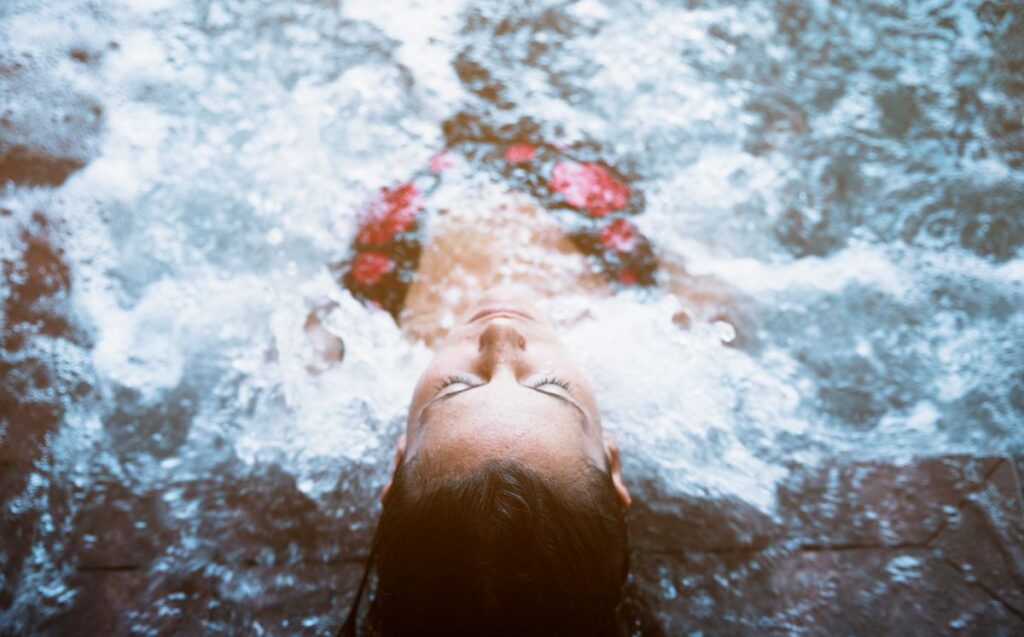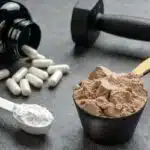Cold Exposure and Mental Health: Unlocking the Parasympathetic Benefits
by Rebecca Jaspan, MPH, RD, CDN, CDCES
You may have heard of cold showers, cryotherapy, and icing for sore muscles, but did you know that cold exposures play a big role in mental health as well?1 To reduce anxiety and practice mindfulness by returning to the present moment, we want to engage the parasympathetic nervous system, or the “rest and digest” system. When your parasympathetic nervous system is engaged, your heart rate is slower, the rate of digestion is increased, energy and blood flow are diverted to help you digest food, your pupils are constricted, and it makes glands in your mouth produce saliva. Your parasympathetic nervous system manages the activities in organs throughout your body when you feel calm and safe.
Understanding the Parasympathetic Nervous System
There are several ways to engage the parasympathetic nervous system in times of high anxiety and stress including deep breathing, meditation, and yoga. Another effective method is cold exposure. Research shows that cold exposure can help minimize anxiety symptoms by lowering your heart rate by up to 15 percent.2
The Mammalian Dive Response Explained
This works due to something called the Mammalian Dive Response. First discovered and formally studied in the 1930s, the Mammalian Dive Response is most prominent in marine mammals, but is found in humans as well.3 The reflex is the body’s physiological response to submersion in cold water and shuts down parts of the body to conserve energy for survival. Your heart rate slows and blood flow to nonessential organs is reduced as blood flow is redirected to the brain and heart. In other words, this response activates your parasympathetic nervous system and relaxation response. Research also shows that cold water increases endorphins and decreases the stress hormone, cortisol. This is one reason that individuals love cryotherapy or a cold plunge. While it may it be painful in the moment, it releases endorphins and activates the parasympathetic nervous system, resulting in a calming effect.
Practical Applications of Cold Exposure
When an individual has a panic attack or is in an extremely distressed state, it can be challenging to access your toolbox of coping skills. Practicing the Mammalian Dive Response is a quick and relatively simple way to calm the nervous system so that other skills can be accessed more readily. If you don’t have a bowl of ice water handy, grab an ice pack from your freezer or even a can of soda and press them over your eyes and forehead. Breathe deeply, then hold your breath for 30 seconds. Repeat this three times and you might notice you are calm enough to use other coping skills.
We encourage our clients to practice this skill before and during meals as well. When an individual has an eating disorder, they are frequently approaching a meal in the sympathetic state, possibly feeling anxious, with an increased heart rate, and clenched stomach muscles. Engaging the parasympathetic nervous helps to begin to change how their brain approaches the food, moving it from threatening to safety. Holding an ice pack or even a cold glass of ice water during a meal is one step they can take to begin rewiring their neuropathways.
Would you give the Mammalian Dive Response a try?
References:
- Kwiecien SY, McHugh MP. The cold truth: the role of cryotherapy in the treatment of injury and recovery from exercise. Eur J Appl Physiol. 2021;121(8):2125-2142. doi:10.1007/s00421-021-04683-8
- Mooventhan A, Nivethitha L. Scientific evidence-based effects of hydrotherapy on various systems of the body. N Am J Med Sci. 2014;6(5):199-209. doi:10.4103/1947-2714.132935
- Panneton WM, Gan Q. The Mammalian Diving Response: Inroads to Its Neural Control. Front Neurosci. 2020;14:524. Published 2020 Jun 5. doi:10.3389/fnins.2020.00524







